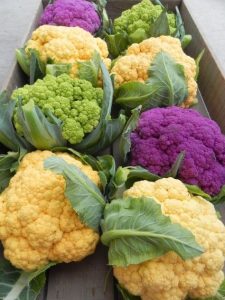
Do you remember when your mother and grandmother preached every night at dinner to “eat your vegetables!?”
No kid wants to admit it, but they were right!
Vegetables are a very important part of balanced nutrition. Tend a little garden if you can and grow some vegetables at home. Use organic fertilizers, no chemical pesticides, and secure a high vitamin and mineral content in the soil.
Compost.
If you can’t grow your own veggies, buy local and organic when possible.

Now, that’s healthy eating.
Our Farmers
With a degree in International Geography, I know that only in the United States can so much food be grown by so few farmers.
Compared to other countries, the United States is geographically positioned at a perfect latitude to maintain an ample growing season. One American farmer alone can feed over 200 people.
One farmer in Russia feeds less than 20 people.
Big difference.
Two-thirds of Russia and one-half of Europe are located at latitudes above the American-Canadian border, so these countries have a limited growing season.

America has beautiful farmlands yielding a variety of year-round crops, but Americans must be careful not to exploit the soil. Vitamins and minerals that are found in soils are decreasing in America due to overuse.
Today, our plants are cross-bred, “hybrid”, and GMO’d to create higher yields, resistance to disease and insect infestation, and quicker growing cycles.
The greater the influence modern technology has over natural foods, the further from basic nourishment foods become. If nitrogen, phosphorus, potash and potassium are added to soil, most plants can be forced to grow.
When inorganic, manufactured chemicals first premiered, many farmers stopped rotating their crops, which they used to do in order to replenish the natural nitrogen levels found in the soil.
Nutrition is sacrificed for higher yields.
Soil is the sole source for all the minerals a plant contains. Climate, humidity, soil conditions, genetics, light, aeration, and soil temperature determine color, size, texture, flavor, plant disease resistance and insect resistance, vitamin and mineral content, and protein levels of vegetables.
The Essential Nutrients
The essential nutrients in the soil fundamental to plants are:

• Calcium
• Phosphorus
• Sodium
• Potassium
• Magnesium and Manganese
• Copper
• Iron
• Zinc
• Iodine
• Chromium
• Cobalt
• Sulfur
• Molybdenum
These are the vitamins and minerals fundamental to human health. Human beings and nature are connected when it comes to what our bodies are made of, and what each of us needs to maintain good health.
Minerals in the soil come from the rocks that make up the soil, and all rocks contain essential elements.
What we do not realize is all living things are comprised of the same elements.
Human beings require these elements for normal body function.
Bones and teeth are like rocks and rocky formations – they all require calcium (in the form of dolomite), boron, magnesium, and strontium.
Salty human tears are like the salt water in oceans – each made of sodium.
Human skin is made of the same minerals as beach sand – both are made of silica.

So, feed your body all of the essential nutrients that it is intended to have daily. Eat your vegetables, and make sure they are grown in healthy soil.
________________
If you want to learn more about healthy eating, contact me at janethull.com. Remember that you are never alone when you are looking for good health!
Gain access to all of my online programs, ongoing support, monthly Q&A, and more by joining my Private Inner Circle Membership Program. I look forward to supporting you on your journey to alternative health and wellness.
_____________
Disclaimer: This article is for informational purposes only, and is educational in nature. The FDA may not have evaluated some of the statements. This article is not intended to diagnose, treat, cure, or prevent any disease. Please discuss with your own, qualified health care provider before adding supplements or making any changes to your dietary program.
Before taking vitamins, consult your doctor; pre-existing medical conditions or medications you are taking can affect how your body responds to multivitamins.
You have our permission to reprint this article if you attribute us with a live back-link to this article and the youtube links. https://janethull.com/